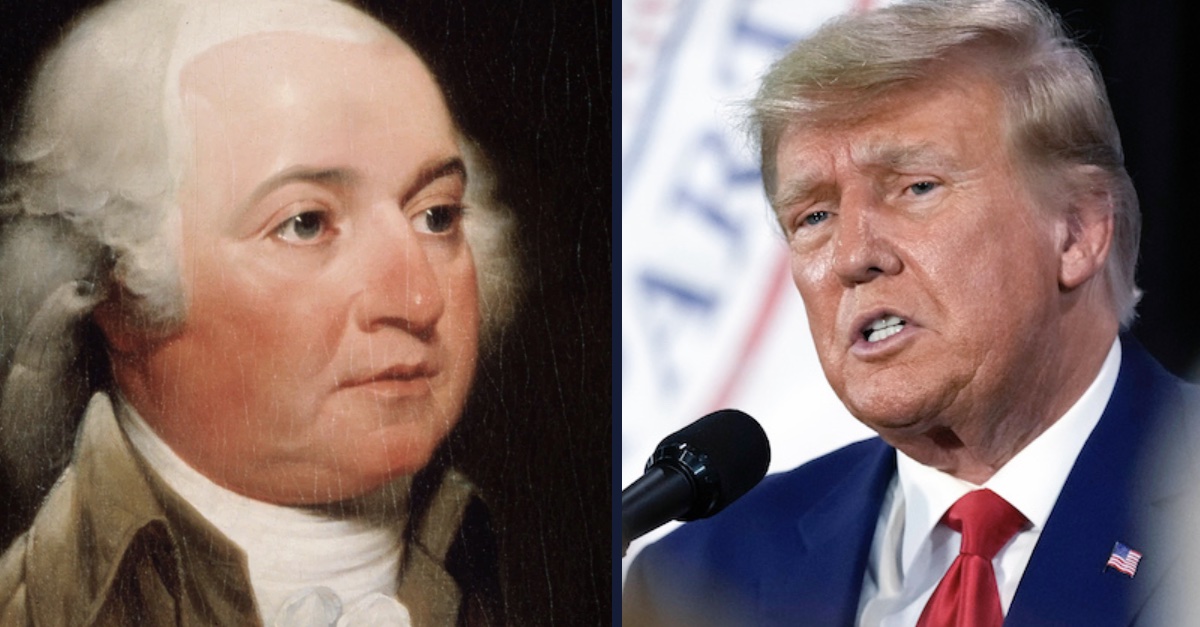
John Adams (White House Historical Association), Donald Trump (AP Photo/Charlie Neibergall, File)
Days after former Donald Trump's Colorado GOP allies petitioned the U.S. Supreme Court to overturn the Centennial State decision to disqualify Trump under the 14th Amendment's insurrection clause from running for president, a new scholarly paper has addressed a "far less titillating" but nonetheless important question: Is the president an "officer of the United States"?
It's a significant question precisely because it's one that conservative attorney Jay Sekulow has asked SCOTUS to answer — and, if Trump wasn't an "officer" on Jan. 6, then questions under the 14th Amendment about whether he "engaged in" insurrection would be immediately imperiled. In a late December petition, Sekulow's first question was whether the president "falls within the list of officials subject to the disqualification provision of Section Three of the Fourteenth Amendment."
Under the Section 3, "No person shall be a Senator or Representative in Congress, or elector of President and Vice President, or hold any office, civil or military, under the United States, or under any state, who, having previously taken an oath, as a member of Congress, or as an officer of the United States […] to support the Constitution of the United States, shall have engaged in insurrection or rebellion against the same, or given aid or comfort to the enemies thereof."
Though legal scholars Josh Blackman and Seth Barrett Tillman recently wrote that Trump is not an "officer of the United States" for 14th Amendment purposes, BYU Law corpus linguistics specialist James Heilpern and attorney Michael T. Worley responded on New Year's Day with a paper that reached the opposite conclusion, by pointing to the Postal Act of 1792:
Our conclusion is simple: the President was an officer of the United States as originally understood both at the Founding and the ratification of the Fourteenth Amendment. Numerous sources confirm that "officer of the United States: was not a term of art, which by itself settles the matter. Regardless, founding-era sources also refer to the President as an officer of the United States. This includes the Postal Act of 1792, which lists the President with officers of the United States. Additionally, there is strong probative evidence that, in 1868, President was considered an officer of the United States.
The Postal Act of 1792 that birthed the U.S. Postal Service, signed into law by none other than the first president of the United States, George Washington, stood out to the authors as "founding-era" proof that the president was understood to be an "officer of the United States" and that Trump was "wrong" to argue in a Colorado Supreme Court brief that "not one authority holds that the President is an 'officer of the United States' — no case, no statute, no record of Congressional debate, no common usage, no attorney general opinion."
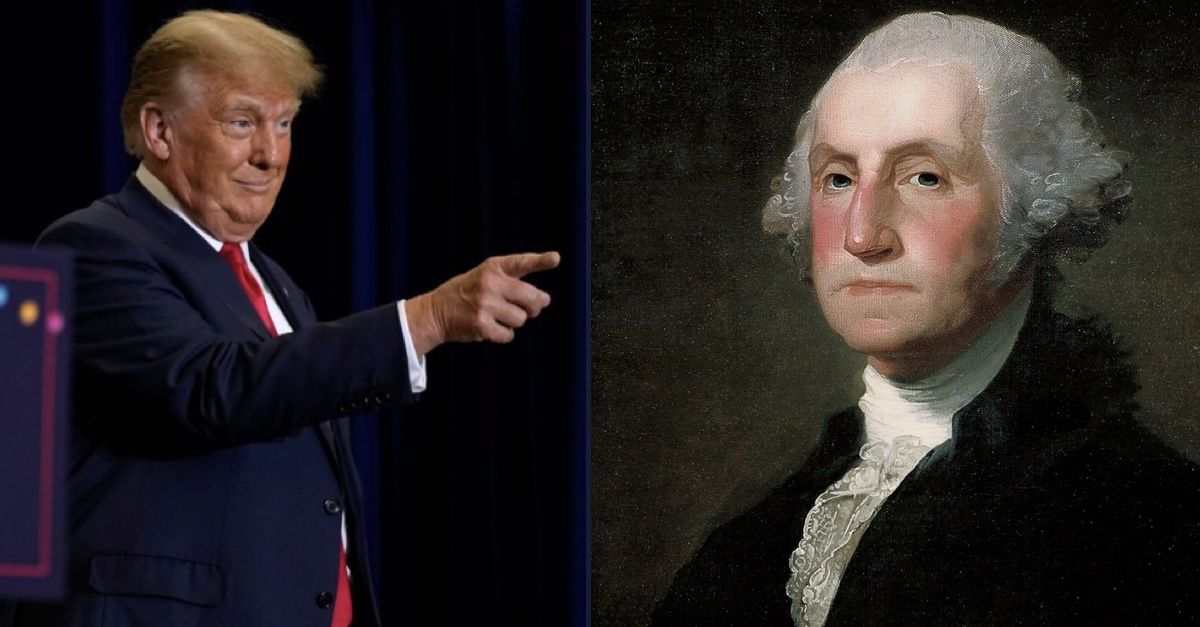
Donald Trump (AP Photo/Charlie Neibergall), a painting of George Washington (AP Photo/Corcoran Gallery of Art)
But there's at least one key problem, as pointed out to Law&Crime by Blackman: the cited Postal Act is actually from 1799 and was signed into law by John Adams, the second president of the United States.
The relevant language of the 1799 Act on the subject of free postage for officers of the United States did include the president, however (bolding ours): "And be it further enacted, That letters and packets to and from the following officers of the United States, shall be received and conveyed by post, free of postage. Each postmaster, provided each of his letters or packets shall not exceed half an ounce in weight; each member of the Senate and House of Representatives of the Congress of the United States; the Secretary of the Senate and Clerk of House of Representatives, provided each letter or packet shall not exceed two ounces in weight, and during their actual attendance in any session of Congress, and twenty days after such session; the President of the United States; Vice President; the Secretary of the Treasury," and so on (see images below).
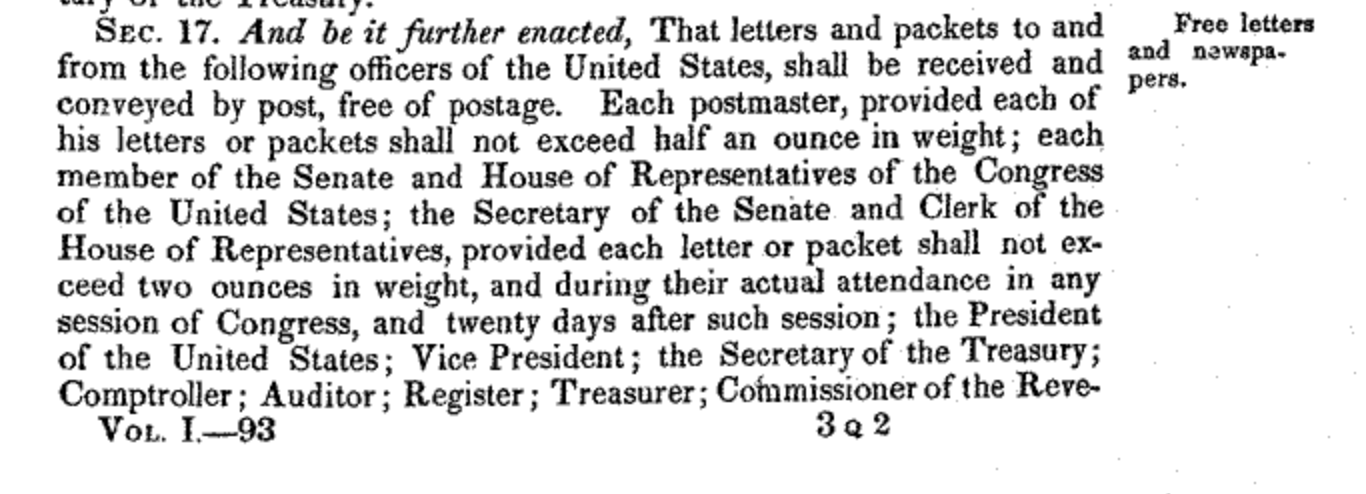
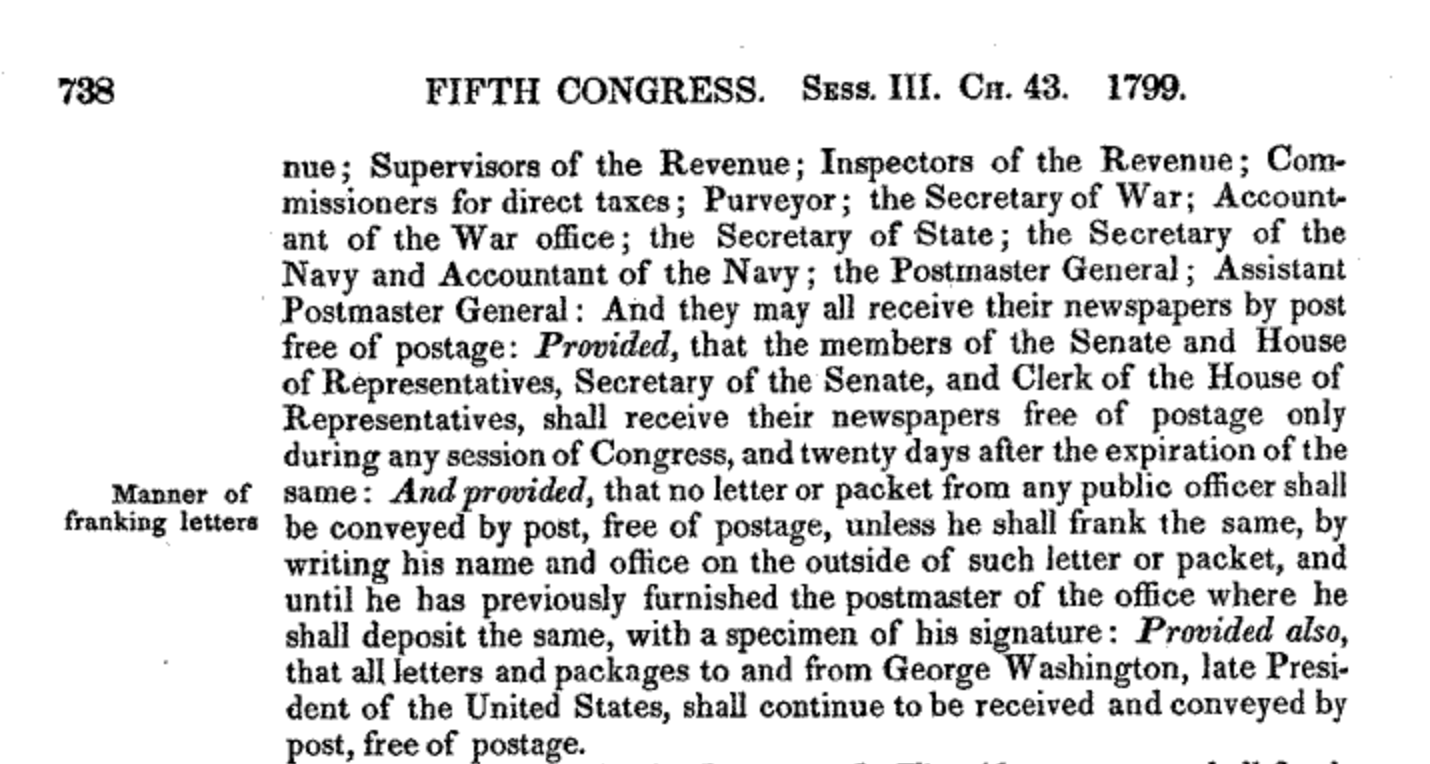
In support of their argument that there is "some evidence that shows that at the time of the ratification of the 14th Amendment, the President was regularly thought to be and talked about as an officer of the United States," Heilpern and Worley pointed to the presidential proclamations of President Andrew Johnson — "the President at the time the 14th Amendment was ratified" — calling himself "chief Executive officer of the United States" and "chief civil executive officer."
What's more, the authors wrote, Johnson's impeachment trial and sitting senators' statements only further supported that the president was seen in 1868 as an "officer of the United States."
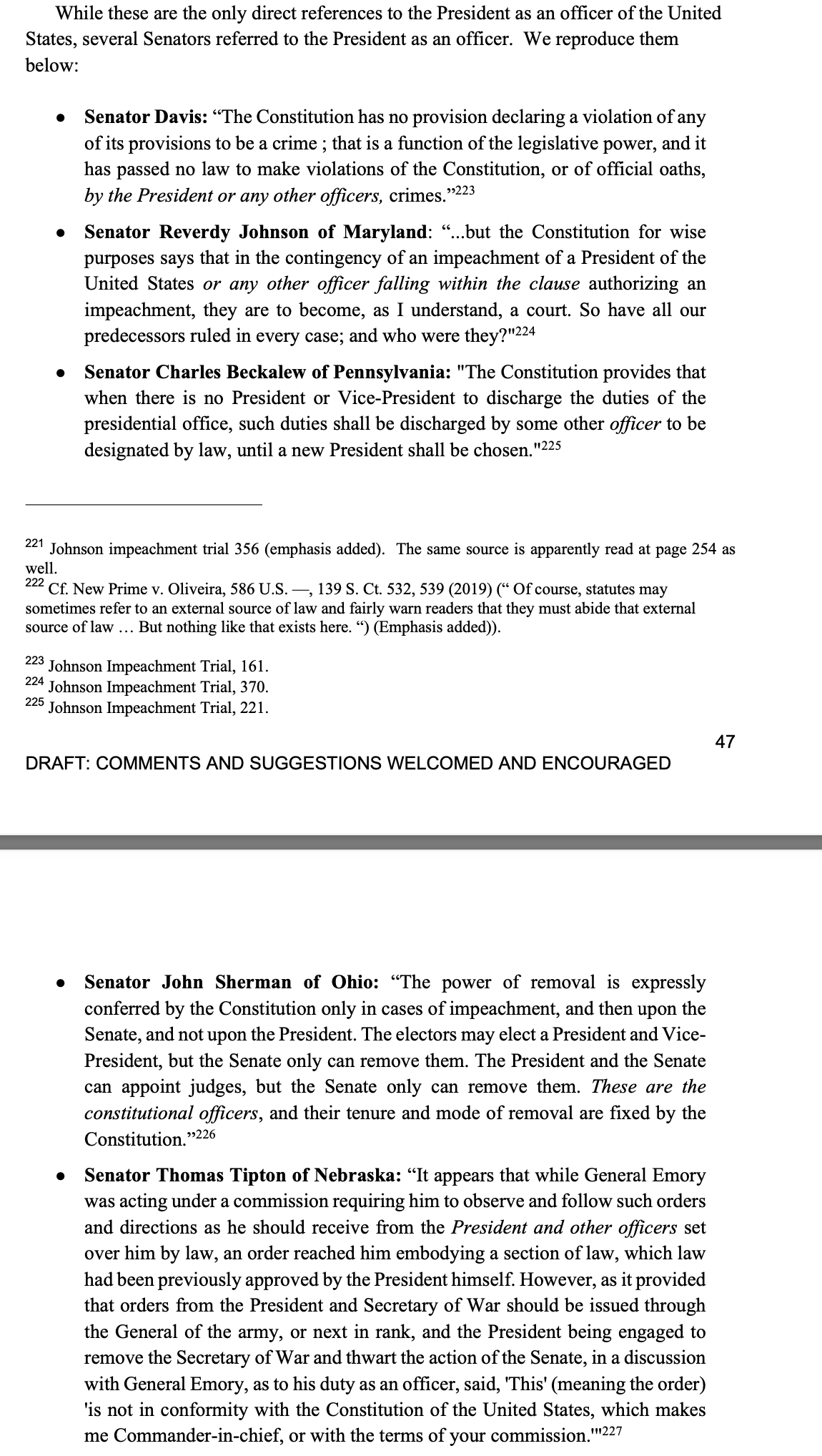
Lastly, the article pointed out that Rep. John Bingham, whom the authors described as the "father of the Fourteenth Amendment," commented ahead of Johnson's impeachment as follows: "Did not the gentlemen know that it is written in the constitution that the President, the Vice President, and every other civil officer of the United States shall be removed from office on impeachment for and conviction of high crimes and misdemeanors."
"This is yet another example illustrating that the President and Vice-President were officers of the United States," the authors concluded. "Taken together, we believe that the legislative history of the Fourteenth Amendment and the Impeachment Trial of President Andrew Johnson demonstrates a consistent linguistic practice of identifying the President as an officer generally, and 'Officer of the United States,' specifically."
Blackman and Tillman's response in Reason's The Volokh Conspiracy did not give the paper high marks, however, dubbing it: "A New, Rushed, Flawed Article In The Section 3 Debate."
"As often happens in anticipation of, and during fast-paced litigation, people who have no prior expertise in an area profess an immediate expertise, and make bold conclusions with the intent of influencing that litigation," they wrote. "This may be one such paper."
Blackman and Tillman did stop there:
Our criticism here is not that Heilpern and Worley are wrong. Our criticism is much deeper: they do not understand the complex interplay of federal and state constitutional and statutory provisions which controlled oath-taking in South Carolina circa 1789 and 1790. And if they do not understand that … how can they usefully comment on the validity of the "support" argument and Section 3 in 1868?
The answer is that they can't. Furthermore, their comment that views which contradict their own are "absurd" is hyperbole. Unfortunately, such hyperbole is becoming common in the Section 3 literature.
Read the law review article here.
Editor's note: this story was initially headlined around the 1792 Postal Act signed by George Washington, but the authors of "Evidence that the President is an 'Officer of the United States' for Purposes of Section 3 of the Fourteenth Amendment" incorrectly stated which Postal Act contained that language. It was actually the Postal Act of 1799, signed by Founding Father and second U.S. President John Adams, that included the "officers of the United States" wording. The headline and photo has been changed accordingly and the story corrected.
Comments